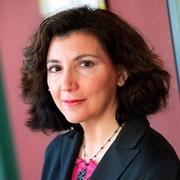
Muslim countries cannot be considered secular and liberal in the way we in the U.S. understand these qualifications, says Jocelyne Cesari, Lecturer in Islamic Studies at HDS.
Cesari, who is director of Harvard's Islam in the West Program, will talk about Muslim democracy and about her latest book, The Awakening of Muslim Democracy, during an event on Thursday, March 26, on the HDS campus.
HDS recently caught up with Cesari to discuss some of the issues around political Islam.
HDS: What does Muslim democracy look like?
Cesari: Besides free and fair elections, there exists a separation of powers, a rule of law, and a citizenry that is not discriminated or treated unequally by law based on religion. We can consider Senegal, Indonesia, and now Tunisia emergent Muslim democracies.
When it is the case that practices remain discriminatory, the offenders are (or should be) punished by law. At the same time, the freedom of speech and the freedom of sexual minorities can be limited by moral and religious values as well.
HDS: Why haven't the nation-building processes in states like Egypt, Iraq, Tunisia, and Turkey created liberal democracies in the Western mold, but have instead spurred the politicization of Islam by turning it into a modern national ideology?
Cesari: The main reason of this different trajectory comes from the fact that the state preceded the nation. The nation was built sometimes overnight by a small elite of westernized leaders who engineered Islamic institutions, clerics, and sometimes Islamic law into the state apparatus with the goal to create a new political community and also to control religious actors.
HDS: What does the role of political Islam mean for the U.S.?
Cesari: It means that the U.S. foreign policy has to take seriously religion in general and Islam in particular. In this regard, the state in Muslim countries cannot be considered secular and liberal in the way we in the U.S. understand these qualifications. Therefore, state actors should not be taken at face value when they justify authoritarian acts to defend "secular values" against Islamists.
HDS: What is the impact of ISIS on Muslim democracy?
Cesari: Because of the nature of ISIS's political mission, it has the capacity to discredit any democratic project in Muslim countries by denying the possibility of civil liberties and rights of all citizens, independently of religion. ISIS's aim is to build a homogenous community of Muslims who behave according to the same interpretation of the Islamic law and to implement this law by force.
–by Michael Naughton
